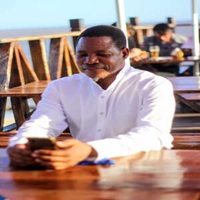
1st Coordinating Council of the Ministry of Transport and Logistics Closes Without Agenda for Urban Transport

Paulo Vilanculo"
Last Friday, September 12, 2025, Eng. João Jorge Matlombe inaugurated two locomotives for the freight transport of the Public Company Ports and Railways of Mozambique (CFM-EP). During the ceremony, the following stood out:be in the process of being purchased, after the tractor scandal,theacquisitions of a batch of ten locomotives,which will reinforce the towing capacity in the national railway systems, within the scope of the CFM Strategic Plan in the context of alignment with the Government's Five-Year Plan, in the search for greater guarantees of efficiency, competitiveness and integration of the sector. Despite the pomp surrounding the locomotives' inauguration, the event revealed some gaps in the national transportation strategy. Reinforcing the railway network, while vital to the economy and the flow of goods, does not directly address the challenges of urban passenger transportation, which remains without concrete solutions. Another point that should merit attention is the scope of the CFM Strategic Plan itself: the population that faces long lines, overcrowding, and a lack of accessible and regular transportation on a daily basis. Although aligned with the Government's Five-Year Plan, there is a lack of transparency regarding how gains in freight transportation will translate into direct social benefits. Furthermore, the plan's sustainability is questionable, as the focus on locomotives should be paralleled by a policy of integration with other modes of transport: road, sea, and air, which could reinforce imbalances and centralize gains on just a few strategic routes. The emphasis on freight may suggest that the sector is more oriented toward serving major logistical and commercial interests, often focused on exports, than toward improving internal mobility and the quality of life of Mozambicans. While investments are limited to locomotives to strengthen freight transportation, thousands of citizens remain hostage to a precarious urban system, marked by overcrowded "chapas," road insecurity, and a lack of sustainable alternatives. The lack of a clear agenda for this sector reveals a mismatch between major structural investments and the daily needs of citizens. The lack of concrete measures for this segment leaves open the debate about the government's ability to balance large-scale strategic investments with the immediate needs of ordinary citizens. Parallel to the inauguration of the locomotives, the first Coordinating Council of the Ministry of Transport and Logistics took place, under the motto "Making Transport and Logistics a driver of sustainable and inclusive development." However, when journalists tried to divert the discussion to the minor details of the ministry's scandals, such as the hiring of a non-existent company to manage tolls and the much-publicized issue of tractors, the man designated as the speaker of the event lost his voice. Behind the scenes, journalists responsible for covering the coordinating council say that, in a demonstration of teamwork, another advisor approached and gave the spokesperson a "discreet" touch on the back, suggesting an escape. The spokesperson, without saying another word, left the stage, leaving the group of journalists behind. It was certainly, perhaps, for the Ministry of Transport, the best way to shake off problems, rather than scheduling and facing them without having anything to say to the people. Institutional reports indicate that the meeting served as a forum to align strategies, discuss challenges, and reinforce the sector's importance as a structuring pillar of the country's economic growth. Although the Coordinating Council's focus was on advances in rail freight transportation, observers point out that the ministerial document did not yet provide a clear agenda for urban transportation, one of the greatest concerns of residents in Mozambique's major cities. If the Coordinating Council was held under the motto "Making Transportation and Logistics a driver of sustainable and inclusive development," it raises more questions than answers. If the goal is inclusion, why didn't the discussions include urban transportation, one of the most exclusionary sectors today? The official discourse, anchored in the motto "Making Transportation and Logistics an engine of sustainable and inclusive development," contradicts the reality experienced on the streets of large cities. Talking about inclusion without presenting concrete measures to ensure decent urban transportation in Mozambique sounds like empty rhetoric. Inclusion isn't measured solely by the ability to transport coal, minerals, or export goods; it's also measured by the dignity afforded to ordinary citizens, who need to get to school, the hospital, or work every day. In closing, the Minister of Transport raised even more questions. He left an uncomfortable doubt in the air by equating the investments made to materialize the Coordinating Council of the Minister of Transport and Logistics with an enigma equal to the controversial expenditure on the purchase of the LAM aircraft. Was this a sign of real ignorance about the costs of each operation or an act of political exhibitionism to justify waste in times of crisis? While people are urged to be patient as they face the daily collapse of urban transportation, and while clear strategies for inclusive mobility are lacking, the minister's comparison raises suspicions of a management focused more on impactful rhetoric than on transparent and responsible planning. Between the promise of sustainability and controversial investment practices, the transportation sector continues to navigate a crossroads between modernization and waste.2025/12/3
Copyright Jornal Preto e Branco All rights reserved . 2025
Copyright Jornal Preto e Branco Todos Direitos Resevados . 2025
Website Feito Por Déleo Cambula